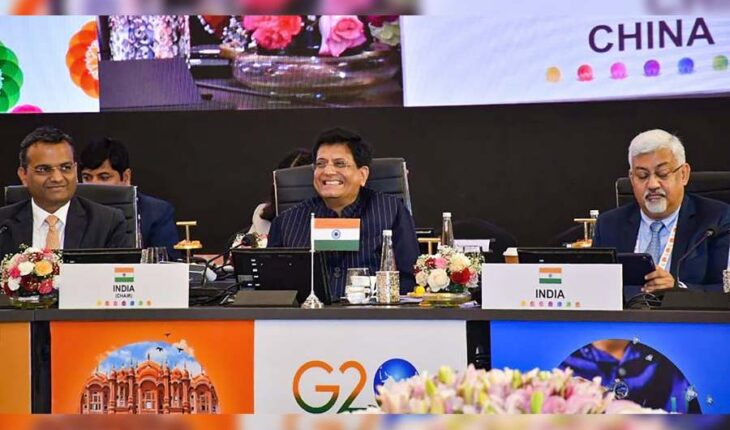The recent G-20 trade and investment ministers’ meeting, under India’s presidency, was a significant event, representing a vast majority of the world’s economic output, trade flows, and population. While the geopolitical tensions surrounding Ukraine led to China and Russia blocking certain references, the broader focus on global trade and investment remained undeterred. The inability to release a comprehensive communiqué due to geopolitical disagreements is concerning. However, the silver lining is the G-20 nations’ collective commitment to bolstering global trade and investment. This collective resolve is a testament to the belief that cross-border commerce and investment are pivotal for global prosperity and growth. India’s government has identified five key outcomes from the meeting. These include discussions on global standards to bridge regulatory differences and a compendium of best practices for recognizing professional qualifications in sectors like medicine, law, and nursing. Commerce and Industry Minister Piyush Goyal’s assertion that these outcomes are among the most significant in G-20 discussions is noteworthy. The push for digitalization of trade documents is a progressive step. While the focus is currently on transactional paperwork, future discussions should also encompass government filings for cross-border trade. The ‘Jaipur Call for Action’ is particularly promising. By urging global organizations like the International Trade Centre, WTO, and UNCTAD to enhance the Global Trade Helpdesk, the G-20 is addressing the information gap that often hampers small businesses. This initiative aligns with Prime Minister Narendra Modi’s emphasis on supporting MSMEs, which play a crucial role in global employment and GDP. However, while global initiatives are essential, domestic actions are equally critical. India must introspect on its support mechanisms for MSMEs. The current push for investments through productivity-linked incentives can be refined to cater more to MSMEs. While large investors might find the bureaucratic process smoother, smaller enterprises still face challenges.
India’s MSME push needs refining for better results
Published Date: 02-09-2023 | 7:32 am





